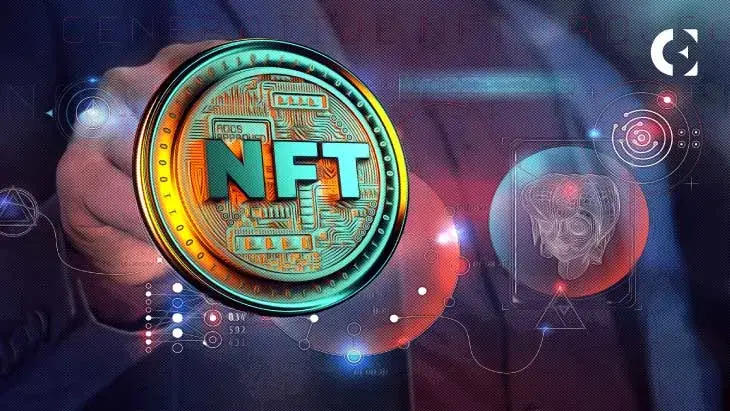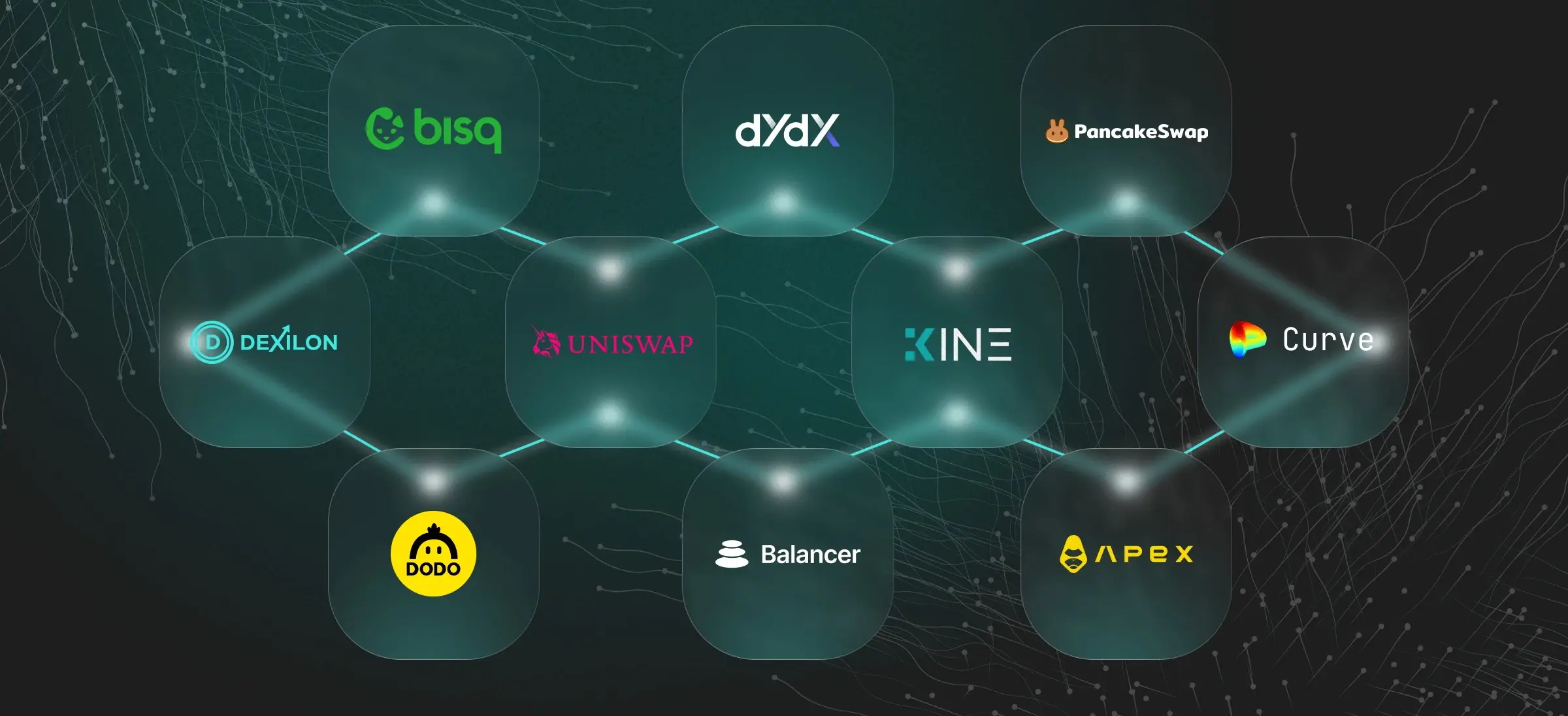Understanding the Role of NFTs in Crypto Gambling
Unlock the secrets of NFTs in crypto gambling! Learn how these digital assets are transforming online betting by boosting security, engagement, and transparency. Dive into the new opportunities and challenges they bring to the gambling world.

According to Statista, in 2025, the NFT market is expected to generate US $608.6 million in revenue.
The rise of cryptocurrencies has already changed gambling as we know it. Now, the increasingly popular Non-Fungible Tokens (NFTs) have made their way to digital gambling, evolving online betting faster than ever.
While initially popular in the art and gaming sectors, NFTs have now marked their presence in the crypto-based gambling scene. This change has transformed how players engage with digital betting platforms.
Merging the unique ownership capabilities of NFTs with blockchain transparency is a fast-changing face of crypto gambling, with increased security and reward.
So, if you are new to NFTs and want to learn how these digital assets are affecting the modern gambling system, this platform is for you.
This blog explores the role of NFTs in the space of crypto betting and why they are so important to both players and operators alike.
What is an NFT (Non-Fungible Token)?
Before covering the role of the NFTs, let's get familiar with the concept of these digital assets.
NFT is a digital asset on a blockchain that represents the ownership of a one-of-a-kind item. Unlike cryptocurrencies, such as Bitcoin or Ethereum, which are interchangeable, an NFT is unique and cannot be reproduced. They tokenize digital art, virtual real estate, music, and even in-game assets, providing proof of authenticity and ownership.

The NFT is a unique digital identifier that's recorded on a blockchain to prove ownership and authenticity and cannot be copied, substituted, or subdivided.
What is Crypto Gambling?
Crypto gambling is the practice of wagering or playing digital currencies on online casino games, sports betting, and poker. In these platforms, digital money is used as casino chips instead of fiat money or traditional assets. Various digital currencies such as Bitcoin, Ethereum, Litecoin, Dogecoin, Solana, Tether, and other crypto assets are used in Crypto-based gaming. Crypto-based gambling has been on a constant rise since the introduction of cryptocurrency.
These platforms use blockchain technology, which means they are a lot safer than general online gambling. These assets can be stored in crypto wallets like Metamask and Blockstream Jade.

Furthermore, crypto betting, which is relatively new to the market, is already evolving rapidly. For instance, Integrating NFTs adds a new dimension to this industry. This can enhance the player's experience and create new opportunities for players and operators.
However, as there is a sudden rise in cryptocurrency gambling, there can be a lot of unlicensed and illegal platforms. So, for a safe betting experience, you need to look for Top Crypto Gambling Sites.
Now that we are well aware of what NFTs and crypto-based betting is. Let’s move on to the roles of these digital assets in the modern casinos.
If you are new to Crypto Betting, check out our blog on The Ultimate Beginner’s Guide to Crypto Betting in 2025.
The Role of NFTs in Crypto Gambling
The NFTs have already made a significant impact on the digital money betting platform. Here are some roles that this digital asset has made in e-money gambling.
Ownership of Digital Assets
NFTs can enable players to have ownership of unique digital tradable assets within a gambling ecosystem, such as collectibles, avatars, or virtual casino tokens, that may have real-world value. Such assets can be traded or sold in NFT marketplaces, adding another layer of financial potential to the gambling experience.
For instance, players might use NFTs as stakes in a betting game or as exclusive in-game items that provide utility or enhanced gameplay features. With such an ownership structure, players can really have something concrete to hold as valuable on the platform other than the outcomes of their gambles.
Improved Transparency and Fair Play
By using blockchain in a tokenized economy, NFTs ensure that all gambling platform transactions are transparent and verifiable. Every transaction involving an NFT is recorded on a public ledger to trace the history of ownership and past transfers. The use of NFT is safe based on how blockchain is affecting gambling.
The transparency given to players helps in building trust in the system since they can independently verify the fairness of the outcome or ownership of an asset. Furthermore, the fact that the blockchain is public helps prevent manipulation in both the game mechanics and the transfer of assets, creating a secure environment for participants.
Decentralized Platforms
NFTs have an enormous role in the decentralization of various gambling platforms, which can support players' direct bets with no controlling party intervening between such transactions. Their self-executable smart contracts perform agreements coded in this blockchain by immediately influencing the enforcement of agreed-upon rules within these games. This can be payouts or any form of asset transfer.

Smart contracts cut out the intermediaries; hence, gambling is an increasingly autonomous process with limited chances for human errors or fraud. Such a decentralized structure not only raises fairness but also grants more control and security for players, who directly interact with each other in a blockchain-powered ecosystem.
Reward Systems and Loyalty Programs
Recently, NFTs have also been used in crypto gambling for reward systems in gamified and loyalty programs. Players can get unique NFTs for achieving certain milestones, gaining big bets, or consistently playing games.
Such NFTs can give one exclusive benefits, including access to exclusive VIP features, even better odds, or special gambling events. Such digital collectibles can also bear value in that they can be sold or even traded in some third-party NFT marketplaces for real-world rewards.
This will help incorporate loyalty into such NFTs, which will give players much more reason to continue playing and, at the same time, increase their engagement through exclusive ownership of digital assets.
Pros of NFTs in Crypto Betting
We can see that the Crypto casinos have benefitted a lot from the introduction of Non-Fungible Tokens. So, let’s see the positives of this digital asset in the gambling world.
- Full control over NFTs by the player grants them the right to use them cross-platform multiple times or sell them in secondary markets.
- Gamification, now integrated with NFTs, offers a collectible and customizable experience.
- With blockchain, security in transactions and ownership of assets is absolutely guaranteed to be fair and transparent.
- Monetization can be possible through the selling or trading of NFT assets.
Risks and Challenges of NFTs in Crypto Betting
Like there is no light without the shadows, NFTs in crypto games also have risks following some great advantages. Here are a few potential risks and challenges of NFTs in gambling.
- The value of NFTs like cryptocurrencies are highly unpredictable and volatile, which can have an impact on the players if not addressed properly.
- The legal landscape for crypto gambling and NFTs is still evolving, with some countries still having restrictions on these digital assets.
- While blockchain is secure, users must remain vigilant against scams and fraudulent activities.
Regulation and Legal Concerns
While the benefits of NFTs in crypto gambling are significant, there are also some important legal and regulatory considerations. The gambling industry, especially when combined with cryptocurrency, is a target for governments and regulatory bodies.
As the legal landscape around crypto and NFTs continues to evolve, operators and players alike must keep themselves informed about changing laws to avoid risks related to illegal or unregulated gambling.
Here is a list of countries and their regulation on NFTs
| Country | NFT Regulation Status |
|---|---|
| Canada | NFTs are largely unregulated in the Canadian market, but there are growing concerns around taxation and securities laws. |
| United States | Unregulated, with SEC examining potential unlawful offerings related to NFTs. |
| European Union | Working on unified regulations through the Markets in Crypto-Assets (MiCA) Regulation. |
| United Kingdom | Recognizes NFTs as personal property and offers legal protection against fraud. |
| China | Imposes restrictions on cryptocurrencies and is cautious towards NFTs. |
| India | Measured approach; exploring the benefits of NFTs, especially in the arts sector. |
| South Korea | Imposes a 20% tax on NFTs with sales exceeding KRW 2.5 million. |
| Liechtenstein | Enacted the Token and Trusted Technology Service Provider Act (TVTG) for digital assets. |
| Australia | No specific regulations yet, but potential for taxation and consumer protection measures. |
| Japan | NFTs are generally considered property; regulations are being explored for financial securities. |
| Singapore | Supports innovation in NFTs but has consumer protection laws and anti-money laundering regulations. |
| United Arab Emirates (UAE) | Highly supportive of NFTs and blockchain technology, with plans for more regulatory clarity. |
| Brazil | Regulated under cryptocurrency laws; NFTs are still a developing area with focus on taxation. |
| Russia | Has started exploring the legal framework for NFTs with ongoing regulation discussions. |
If more countries regulate the NFT market, we may see virtual casino rising in the Gambling Economy.
Frequently Asked Questions (FAQs)
What are NFTs, and how do they work in crypto gambling?
NFTs (Non-Fungible Tokens) are digital assets that represent ownership of unique items on a blockchain. In crypto gambling, NFTs are used as digital collectibles, avatars, or even stakes in gambling games, offering players ownership of in-game assets with potential real-world value.
How do NFTs improve transparency in crypto gambling?
NFTs are powered by blockchain technology, which offers transparent and verifiable transactions. Every transaction involving an NFT is recorded on a public ledger, allowing players to verify the fairness of outcomes and ownership history.
What are decentralized platforms in the context of NFT gambling?
NFTs support decentralized platforms where players can directly place bets with no central authority. Through smart contracts, the blockchain autonomously executes transactions, reducing the risk of human error and fraud.
What are the benefits of NFTs in crypto gambling?
NFTs offer players full control over their assets, the ability to trade or sell NFTs in secondary markets, a gamified experience with collectible items, and enhanced security through blockchain technology. Players can also earn rewards or loyalty tokens that have real-world value.
What risks are associated with NFTs in crypto gambling?
NFT values, like cryptocurrencies, can be highly volatile, affecting players' investments. Additionally, the legal landscape around NFTs is still evolving, and users must remain careful against scams and fraud.
Are NFTs used in crypto gambling for rewards and loyalty programs?
Yes, NFTs are increasingly used in loyalty programs where players earn unique digital collectibles for achieving milestones or consistently participating. These NFTs can offer exclusive benefits like better odds or VIP access, which can be traded for real-world rewards.
How does the value of NFTs affect players in crypto gambling?
The value of NFTs can fluctuate significantly, making them both an opportunity and a risk for players. While they can be sold for profit, they can also lose value depending on market conditions.
Are NFTs in crypto gambling legally regulated?
NFT regulation varies by country. Some countries have clear regulations, while others are still developing their frameworks. It’s important for both players and operators to stay updated on legal changes to ensure compliance and avoid risks.













